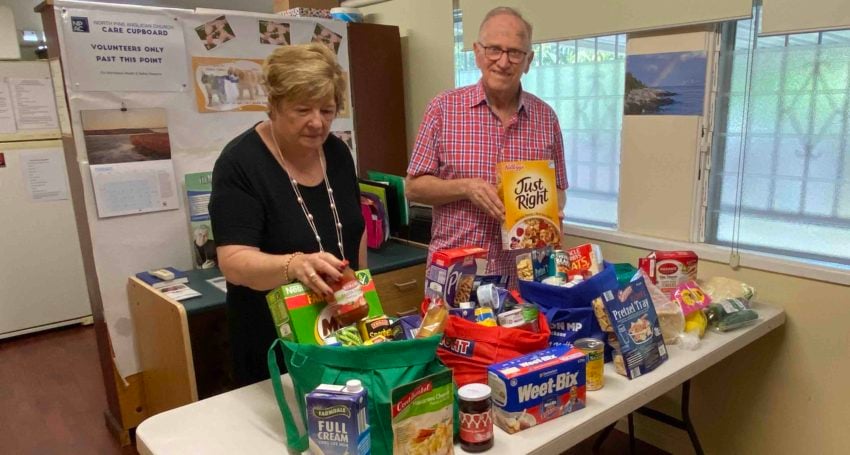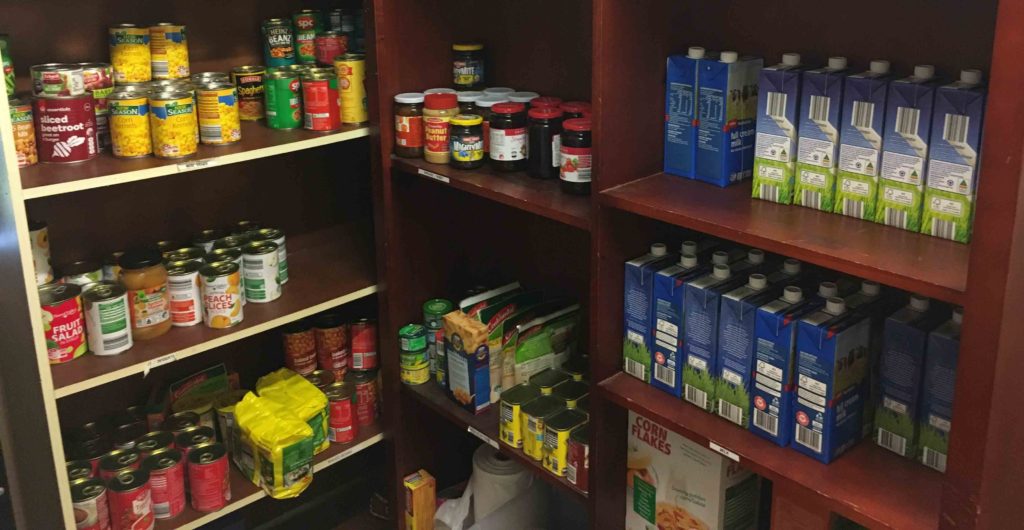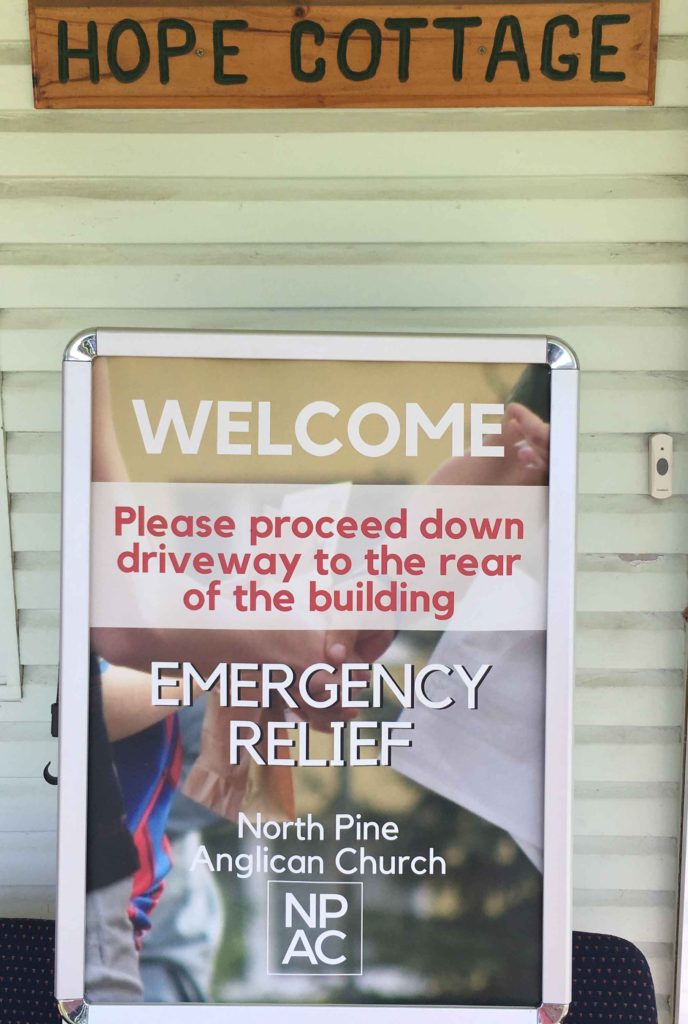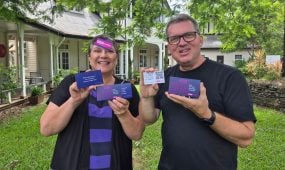When the cupboard is bare – a helping hand is there
Features
“A church emergency food relief initiative supplies people with essential groceries, while enabling parishioners to connect with those who have little or no knowledge of Jesus and provides an opportunity to offer a sensitive and appropriate introduction to the Gospel,” says Care Cupboard Coordinator Glenda Ebert on The Parish of North Pine’s wonderful pantry ministry

In 2007 a Pine Rivers newspaper published stories about the increasing number of people who were homeless or disadvantaged living in the Shire. The Parish of North Pine’s response to this concern was to set up a ‘parish pantry’ and a ‘People In Need Committee’ at St John’s, Petrie. This Parish initiative, now called ‘Care Cupboard’, is part of the Pine Rivers Care Network, a group of eight ecumenical churches providing food parcels for people in need in the local community.
Advertisement
The various emergency food relief centres are open one or more days a week and the Network is linked to the Pine Rivers Neighbourhood Centre, run by Encircle Ltd, a community owned and operated not-for-profit charitable organisation.
Our parish’s Care Cupboard is open Tuesdays and Thursdays from midday to 1.30 pm, with two volunteers rostered on to help people on low incomes, those living with mental or physical health issues, people going through relationship breakdowns, those struggling to find work and those experiencing homelessness.
Last year 385 food parcels were provided to people in need. Care Cupboard is an integral part of North Pine’s Mission, “to love Jesus, grow disciples, serve and change the world” and implements The Third Mark of Mission of the Anglican Communion, “To respond to human need by loving service.” The 20 retired parishioners who volunteer for Care Cupboard see it as an opportunity to love our neighbours as ourselves and grow in Christ.

“Last year 385 food parcels were provided to people in need”
A welcome card listing Parish service times and ministries is tucked into every grocery bag distributed. After receiving food parcels from Care Cupboard, a single unemployed father of three began his faith journey at St John’s where he and his children were recently baptised. Two church ‘seekers’ who were helped with food now attend Sunday 530 Contemporary Worship with Cafe Church and 530 OUT in the Petrie Pub.
When volunteers are asked, “Where do you get these groceries from?”, there is an opportunity to share the Gospel in a simple, non-threatening way and to invite people to come along to church. If some folk ‘unpack their story’, volunteers provide a listening ear and will offer prayer if appropriate. From time to time, those who ‘get back on their feet’ will drop in a bag of groceries with a “thank you for helping me when I needed it” note.
My husband, Peter, and I shop, manage cash donations, document expenses in a suitable format for end-of-year audit, prepare volunteer rosters, provide Parish updates and liaise with the Parish Communities Ministry Leader.
A dedicated space in the parish facility, Hope Cottage, stocks Care Cupboard supplies. Groceries and cash for the purchase of groceries are donated by parishioners; fruit, vegetables and frozen meat are sourced from a food bank; and, bread is donated by a local bakery.

“When volunteers are asked, ‘Where do you get these groceries from?’ there is an opportunity to share the Gospel in a simple, non-threatening way and to invite people to come along to church”
A church emergency food relief initiative supplies people with essential groceries, while enabling parishioners to connect with those who have little or no knowledge of Jesus and provides an opportunity to offer a sensitive and appropriate introduction to the Gospel.
So, what lies ahead for Care Cupboard? We are encouraged by Matthew 25.40, “Truly I tell you, just as you did it to one of the least of these who are members of my family, you did it to me.”
We pray that the circumstances of those we help will change and that the Spirit will stir in their hearts so they want to know Jesus. We pray, too, for the ongoing support of North Pine parishioners.
Top 10 tips for starting and coordinating an Emergency Food Relief Initiative
- Discuss the idea with your Parish Priest and wardens.
- If they agree with the idea, ask parishioners for their opinions and capacity of support, as most donations will be made by them.
- Approach your regional council, or other government agencies, to find out what is already being offered in your community, as you may be able to work in alliance with churches already providing this outreach.
- Start small and operate the same one day per week with restricted opening hours.
- Appoint a coordinator who is willing to manage the initiative.
- Put the safety of volunteers first by ensuring they complete the Diocesan Parish Safety Induction Pack.
- Welcome people with respect and compassion and be non-judgemental.
- Provide church brochures, as these may open up discussion about God and your church.
- Flyers, church signage and the Parish website are avenues for making the food relief known, although be careful about ‘advertising’ too widely as you must be able to deliver the service you are offering.
- Keep parishioners ‘in the know’ with weekly updates in the Parish e-news/pew sheet and thank them for their support.





